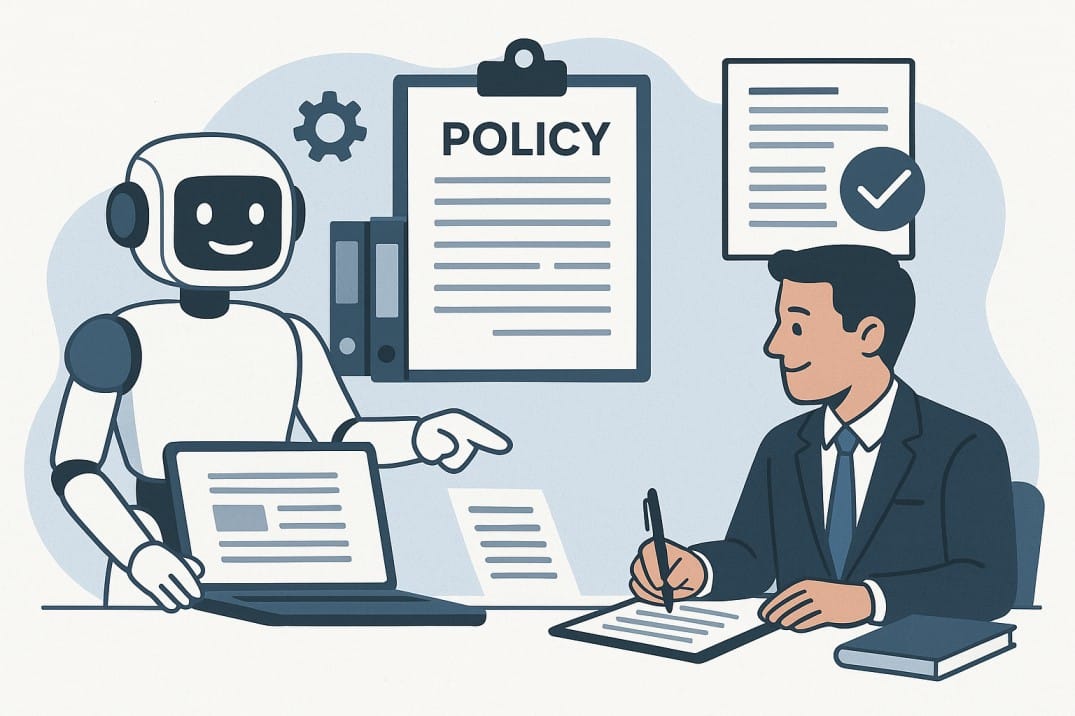Corporate compliance is a complex, high-stakes domain. Companies navigate a dense web of regulations, internal policies, and ethical standards that demand constant vigilance and meticulous documentation. From drafting clear internal policies to generating comprehensive audit reports, the sheer volume of written material required is immense.
This documentation burden consumes significant time and resources. Ensuring accuracy, consistency, and alignment with ever-changing regulations is a persistent challenge. Now, Artificial Intelligence (AI) writing tools are emerging as powerful allies in this critical function, offering unprecedented speed and precision.
The Compliance Documentation Bottleneck
Creating and maintaining compliance documentation is notoriously difficult. Policies must be unambiguous, procedures easy to follow, and reports detailed yet concise. This requires not only subject-matter expertise but also exceptional writing skills and significant time investment.
Traditional methods often involve lengthy drafting cycles, multiple rounds of review, and a high risk of human error or inconsistency. Even seemingly simple tasks like updating policies across departments become logistical hurdles. The challenge is similar to academic rigor, where precision is key. Just as students now use a popular AI tool for academic writing to manage dense information, compliance professionals recognize the potential for similar AI assistance to overcome these bottlenecks, improve efficiency, and reduce risk.
Accelerating Policy Development with AI
One of the most immediate benefits of AI writers is their ability to dramatically accelerate the creation of foundational compliance documents. This includes drafting internal policies, codes of conduct, and standard operating procedures (SOPs).
Instead of starting from a blank page, compliance professionals can provide AI tools with key requirements, regulatory guidelines, and company-specific context. The AI can then generate a comprehensive first draft in a fraction of the time it would take a human.
This allows teams to move quickly from concept to a usable draft, freeing up valuable expert time for review, refinement, and strategic thinking rather than basic composition.
Maintaining Consistency Across the Board
Consistency is crucial in compliance documentation. Ambiguous language or conflicting statements between different policies can create confusion, undermine enforcement, and expose the organization to risk. AI writers excel at maintaining uniformity.
They can be trained on a company’s specific style guide, terminology, and tone, ensuring that all generated documents share a consistent voice. This standardization offers significant advantages:
- Clarity: Reduces ambiguity and ensures policies are understood uniformly across the organization.
- Efficiency: Simplifies the review process, as editors don’t need to constantly correct for tone or style.
- Brand Alignment: Reinforces a consistent corporate identity in all official documentation.
- Reduced Risk: Minimizes the chance of contradictory guidance leading to compliance failures.
AI acts as a tireless enforcer of stylistic rules, something difficult to achieve manually across large teams.
Enhancing Accuracy and Mitigating Errors
Compliance documents must be precise. Errors, outdated information, or overlooked regulatory changes can have serious legal and financial consequences. AI writers serve as powerful tools for enhancing accuracy.
AI can rapidly cross-reference draft policies against updated regulatory databases, highlighting potential conflicts or areas needing revision. They can identify inconsistencies within a document or across a suite of related policies.
Furthermore, AI tools can assist in summarizing complex legal language into clearer, more accessible terms for employees, reducing the chance of misinterpretation. This meticulous attention to detail helps mitigate the risk of human error inherent in manually reviewing dense documents.
Streamlining Audit Reporting and Analysis
Generating audit reports is another area where AI writers provide significant value. Compiling findings, summarizing evidence, and drafting clear recommendations is a labor-intensive process.
AI can assist auditors by:
- Summarizing Large Datasets: Quickly condensing extensive logs or transaction records into concise summaries of key findings.
- Drafting Report Sections: Generating initial drafts of standard report sections based on templates and provided data points.
- Identifying Anomalies: Highlighting unusual patterns or outliers in data that may warrant further investigation.
- Ensuring Consistent Formatting: Automatically applying required formatting standards to ensure reports are professional and compliant.
This allows audit teams to focus more on critical analysis and less on the mechanics of report writing.
Ethical Considerations and Potential Risks
While AI writers offer substantial benefits, their use in compliance demands careful consideration of potential risks. Organizations must navigate these challenges proactively.
A primary concern is data privacy. AI models process sensitive corporate information, requiring robust security measures to prevent breaches or misuse, especially with cloud-based tools.
Another risk is algorithmic bias. If AI is trained on flawed historical data, it might generate biased policies or reports, inadvertently creating compliance issues. Transparency is also key, as the “black box” nature of some AI can hinder accountability.
Finally, over-reliance without critical human oversight is a significant danger. AI should augment human expertise, not replace the nuanced judgment essential for effective compliance. Organizations must establish clear governance and review protocols to mitigate these risks.
The Indispensable Human Element
Despite their power, AI writers are tools, not replacements for human expertise. Effective compliance requires nuanced judgment, ethical reasoning, and a deep understanding of organizational context, qualities which AI currently lacks.
All AI-generated compliance documents must be rigorously reviewed by legal counsel and subject-matter experts. These human reviewers ensure accuracy, legal soundness, and alignment with the company’s specific risk profile and ethical commitments. AI assists the process; humans provide the final validation.
Conclusion
AI writers represent a transformative shift for corporate compliance teams. By accelerating drafting, ensuring consistency, enhancing accuracy, and streamlining reporting, these tools free up valuable human resources for more strategic tasks.
From crafting foundational policies to compiling complex audit reports, AI offers unprecedented efficiency. When implemented thoughtfully and paired with rigorous human oversight, AI writers become powerful partners in navigating the demanding landscape of modern corporate compliance, helping organizations stay informed, consistent, and secure.



















